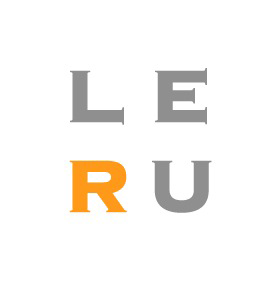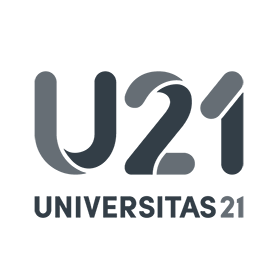News
Vu Nguyen strengtened cryptography
Published: 2025-05-26
Title of thesis: Code-based Cryptography: Attacking and Constructing Cryptographic Systems.
Link to thesis in Lund University Research Portal
Defence: Thursday, June 12th, in E:1406 at 09:15.
Zoom link. Zoom ID: 66922207456.
Describe your...
Title of thesis: Code-based Cryptography: Attacking and Constructing Cryptographic Systems.
Link to thesis in Lund University Research Portal
Defence: Thursday, June 12th, in E:1406 at 09:15.
Zoom link.
Zoom ID: 66922207456.
Describe your research in a popular science way
In today?s interconnected digital world, cryptography is an essential and indispensable tool underpinning crucial aspects of secure communication, online banking, digital transactions, anonymity, data integrity, and so on. Imagine all of the above (nice) things are no longer possible because of quantum computers, which can undermine the security of our digital lives. Researchers are looking for new ways to protect information - a field called post-quantum cryptography. The process ensures long-term security, a smooth transition from classical cryptography, and maintains digital trust. Among popular approaches, code-based cryptography is a reliable and wellunderstood candidate, signified by the selection of an algorithm called Hamming-Quasi Cyclic (HQC) as one of the selected few by the National Institute of Standards and Technology (NIST). This standardization organization produces the main cryptographic standards in the world. There are several other code-based promising candidates, for example, those that are still in the NIST Additional Signature Scheme Proposals, an ongoing standardization effort to diversify our post-quantum digital signature portfolio. This thesis first examines the security of several code-based cryptographic constructions. We then propose novel attacking techniques that can be used to give a better security understanding for code-based cryptography. Lastly, we explore the application of code-based cryptography in lightweight cryptography.
What made you want to pursue a PhD?
Coming from a mathematic background, I always wanted to do research, especially with a more ``applied?? topic. Cryptography was an excellent opportunity for me.
What is the most fascinating or interesting with your thesis subject?
Code-based cryptography is considered quite old and stable, compared to other sibling research directions. However, in the post-quantum era in cryptography, great deals of novel code-based variants/paradigms have been proposed, making code-based cryptography a remarkably rich and lively research area. Lots of interesting things remain to be studied and explored in code-based cryptography, and they can have an immense impact on how data is encrypted in the very near future.
Do you believe some results from your research will be applied in practice eventually? And if so, how / how?
Definitely. For example, a part of my work was towards design flaws in novel code-based constructions. These are very implicit pitfalls that can heavily worsen the security of code-based cryptographic primitives, and we hope that future researchers and users can avoid them. In addition, people will have a bigger and clearer picture of code-based cryptography security.
What are your plans?
Perhaps moving to the industry to know how things work and materialize some of the ideas I have during Ph.D. Such experience may benefit me a lot in the future as a researcher.
Link to the article Vu Nguyen strengtened cryptography
Dino Pjanic effectivized mobile communications
Published: 2025-05-20
Title of thesis: Moving Towards Cognitive Radio Access Networks: Transforming MIMO Complexities into Opportunities
Link to thesis in Lund University Research Portal
Defence: Thursday, June 5th, in E:1406 at 09:15.
Zoom link. Zoom ID:...
Title of thesis: Moving Towards Cognitive Radio Access Networks: Transforming MIMO Complexities into Opportunities
Link to thesis in Lund University Research Portal
Defence: Thursday, June 5th, in E:1406 at 09:15.
Zoom link.
Zoom ID: 69658824268.
Describe your research in a popular science way
The introduction of advanced antenna systems marked a pivotal advancement, employing Multiple-Input Multiple-Output (MIMO) technology. These systems opened new avenues for understanding channel characteristics. An apt analogy for these systems is a large astronomical observatory employing an array of telescopes scattered across the globe to observe the same distant object. Each telescope collects a unique portion of the light or radio waves, influenced by its position and angle. By combining the data from all telescopes, a more detailed and multi-dimensional image is created, surpassing what a single telescope could achieve. In recent years, modern cellular networks have faced new requirements beyond traditional communication between users and the network, including integrated wireless sensing. Wireless sensing utilizes existing communication signals to perceive and interpret the surrounding environment. From a network perspective, this involves leveraging cellular infrastructure to enable sensing without the need for additional dedicated sensors. Rather than solely transmitting data, the network can analyze signals to detect object presence and movement, user positioning, and environmental changes. My thesis partly examines various aspects of wireless sensing, a field still in its early stages at the time of writing. The telecommunications industry is transitioning toward the next generation of networks, 6G, focusing on terabit-level speeds, holographic communication, and AI-driven networks. Unlike traditional communication paradigms, which rely on a reactive approach where receivers wait for signals, cognitive cellular networks will utilize predictive capabilities to anticipate traffic demands and upcoming events. This thesis leverages AI, which, unlike traditional programmed devices, is adaptive, probabilistic, and capable of learning from data to make autonomous decisions. The question of how AI can enable cognitive mobile networks by utilizing MIMO-based "telescopes" to predict user movement patterns or radio channel characteristics over both short and long time horizons is addressed in the thesis. AI technology holds transformative potential to revolutionize cellular network operations by leveraging historical data to enable intelligent, autonomous functionality with minimal human intervention.

Artistic illustration of the concept of spatial fingerprinting.
What made you want to pursue a PhD?
By nature, I constantly seek out new challenges. After 20 years of experience in the industry, I decided it was time to take the next step venturing into the unknown and stepping out of my comfort zone. It?s in these moments, when the ground feels uncertain, that I tend to grow the most as a person.
What is the most fascinating or interesting with your thesis subject?
How the interaction between technological challenges and recent advances in machine learning and AI offers new insights and solutions to complex problems.
Do you believe some results from your research will be applied in practice eventually? And if so, how / how?
Definitely, when I began my PhD, this research field was still largely unexplored, especially from an industrial perspective. Today, AI is regarded as essential for the future of telecommunications systems.
What are your plans?
As an industrial PhD at Ericsson in Lund, it feels natural to return and apply the skills and insights I?ve gained.
Link to the article Dino Pjanic effectivized mobile communications
Syafiq Al Atiiq hardened software against attacks
Published: 2025-05-05
Title of thesis: Principles and Solutions for Improved Availability and Code Vulnerability Detection
Link to thesis in Lund University Research Portal Defence: Friday, May 16th, in E:1406 at 13:15.
Zoom link. Zoom ID:...
Title of thesis: Principles and Solutions for Improved Availability and Code Vulnerability Detection
Link to thesis in Lund University Research Portal
Defence: Friday, May 16th, in E:1406 at 13:15.
Zoom link.
Zoom ID: 68034306533.
Describe your research in a popular science way
My research explored the following question: how do we ensure our system remains available when facing attacks or failures?
I focus on three areas. First, I've developed protocols for Internet of Things (IoT) devices, shielding these resource-limited devices from being overwhelmed by malicious traffic and help them recover after compromise.
Second, I've investigated security vulnerabilities in 5G networks, particularly in their AI-driven mobility prediction systems. I've shown that even a small number of fake devices can significantly reduce prediction accuracy and identified strategies to make these systems more resilient.
Finally, I've explored how artificial intelligence can automatically detect vulnerabilities in software before they become security problems. My research reveals that different programming languages and vulnerability types perform variably.
What made you want to pursue a PhD?
My path to doctoral studies emerged at a professional crossroads after experiencing both the startup and corporate worlds as an employee. This transition period gave me the opportunity to reflect on what truly mattered to me professionally.
What is the most fascinating or interesting with your thesis subject?
Most of the work here is based on real-world problems, and sometimes the most intuitive solution is not always the best one. One example would be that, intuitively, the larger the AI model is, the better the performance should be. But we show that smaller models can perform better (with less inference cost), at least in the vulnerability detection problem that we explored.
Do you believe some results from your research will be applied in practice eventually? And if so, how / how?
Yes! We have a product based on the last two papers of this dissertation. There is a company called VyPr AI, tackling software vulnerability detection using (some of) our results.
Link to the article Syafiq Al Atiiq hardened software against attacks

